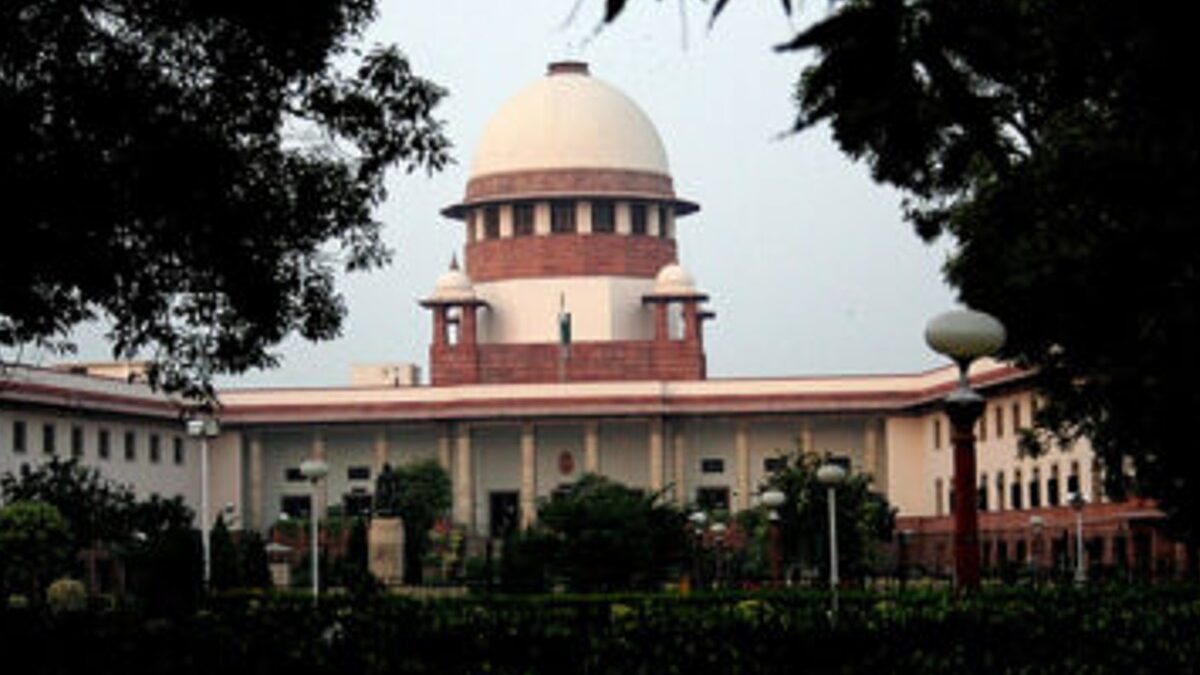
The Supreme Court (Photo: Getty images)
The Supreme Court on Thursday held that the Delhi government would have control over all services in the national capital, including the Indian Administrative Service (IAS), except those pertaining to land, police and law and order [Government of NCT of Delhi v. Union of India].
In a unanimous judgment, a Constitution Bench of Chief Justice of India (CJI) DY Chandrachud and Justices MR Shah, Krishna Murari, Hima Kohli and PS Narasimha held,
“The legislative power of NCT Delhi under Entry 41 would extend to IAS and it shall control them even if they are not recruited by the NCT Delhi. However, it would not extend to the services which comes under land, law and order and police. Lieutenant Governor (LG) shall be bound by the decision of NCT Delhi over services apart from land, police and law and order.”
Explaining the reason behind its decision, the Court said,
“LG shall exercise powers under the administrative role as entrusted by the President. Executive administration can only extend to matters which fall outside the scope of the legislative assembly…and it cannot mean administration over entire NCT Delhi. Otherwise, the purpose of having a separate elected body in Delhi will be rendered futile. Democratically elected government shall have control over its officers. If a democratically elected government is not allowed to control its officers and hold them to account, then its responsibility towards the legislature and public is diluted. If officers are not responding to the government, the collective responsibility is diluted. If officers feel they are insulated from the elected government, they feel they are not accountable.”
The judgment stated that while a state or union territory has the power to make laws on subjects under the Concurrent List, the same will be subject to the existing Central law. At the same time, it has to be ensured that the governance of states is not taken over by the Central government, the Bench opined.
The Court went on to hold that sub-clause (b) of Article 239AA clarifies that Parliament has the power to legislate on any subject related to the NCT in any of the three lists. If there is a repugnancy between law enacted by legislative assembly and law enacted by the Central government, the former will be rendered void, it stated.
The Court had reserved its verdict in the matter on January 18 this year.
The case arose in 2018, when a Constitution Bench of the Supreme Court had interpreted Article 239AA of the Constitution, which contains special provisions with respect to the National Capital Territory (NCT). The peculiar status of the NCT and the powers of the Delhi Legislative Assembly and the LG and their interplay were debated in the case.
The Court in that judgment had ruled that the LG cannot act independently without the aid and advice of the Council of Ministers, and has to work harmoniously with the NCT government.
The appeals relating to individual aspects including services were then placed before a regular bench for adjudication based on the Constitution Bench judgment.
The regular bench had on April 14, 2019, pronounced its verdict on various individual aspects relating to the tussle between the Delhi government and the LG. However, the two judges on the Bench – Justices AK Sikri and Ashok Bhushan – had differed on the issue of ‘services’ under Schedule VII, List II, Entry 41 of the Constitution of India
The issue considered by the Court was whether the exclusion of “services” relatable to Entry 41 of List II of the Seventh Schedule from the legislative and executive domain of the NCT of Delhi, vide a notification of the Government of India dated May 21, 2015, is unconstitutional and illegal.
Since the judges differed, that aspect was referred to a three-judge bench. This new bench then referred the matter to the Constitution Bench on the Centre’s request.
The primary basis of the prayer to refer it to a five-judge bench was that the majority judgment of the Constitution Bench did not consider the purpose and intent of the expression “insofar as any such matter is applicable to Union Territories” as it occurs in Article 239AA(3) of the Constitution, which is the pivotal and crucial aspect of the said provision.
Hailing the SC verdict, AAP chief and Delhi chief minister Arvind Kejriwal termed the order a “victory of democracy” and his party said it was a “tight slap” on the mission to topple state governments across the country.
Kejriwal also expressed his “heartfelt thanks” to the Supreme Court for “doing justice to the people of Delhi” and said the pace of development will increase manifold.
AAP Rajya Sabha Raghav Chadha called the verdict a “landmark decision” and said it sends a stern message.
“Satyamev Jayate. Delhi wins. Hon’ble Supreme Court’s landmark judgment sends a stern message that officers working with the government of Delhi are meant to serve (the) people of Delhi through the elected government and not unelected usurpers parachuted by Centre to stall governance, namely LG,” Chadha tweeted. (With inputs from PTI)
AQI rises to 208, slipping into ‘poor’ category, according to the Central Pollution Control Board
Dilli 6 – Ishq-e-Dilli at Edesia presents a carefully sequenced journey through familiar flavours from…
Two youth arrested for killing a 55-year-old woman during a robbery in Jyoti Nagar; stolen…
Scheme aims to provide affordable meals to over 1 lakh people daily, with each canteen…
Featuring works by Krishen Khanna and Prabhakar Kolte, the exhibition explores Indian modernism through figurative…
Police are probing the stabbing death of a 36-year-old man found near Sanjay Lake in…